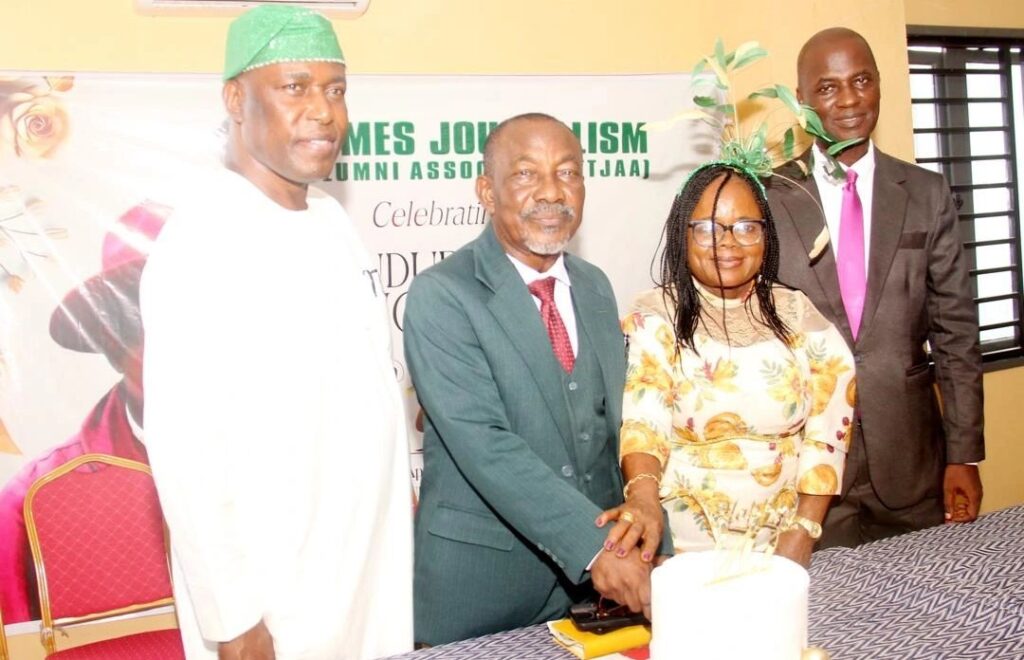In February 1990, Mr Ndubuisi Ugbede, then Acting Editor of Times International, published by the Daily Times Group, was redeployed to the Times Journalism Institute ( TJI) as deputy director.
He was redeployed along with Mr John Araka, a member of the Editorial Board, who was first given a letter as Political Editor, Deputy Editor and eventually Director of TJI on the same day!
Their redeployment was regarded as Siberia posting from their former well-known editorial positions.
“When we got to TJI, my Director, Araka said, they sent us to Siberia, let us turn it to Moscow,” Ugbede recalled on Thursday at a 70th birthday Symposium held for him by the Times Journalism Alumni Association (TJAA).
Siberia in Russia used to be a place of exile, punishment, and harsh conditions, while Moscow is the capital city.
They did turn TJI, which unfortunately no longer exists, into a desirable Institute with a review of the curriculum and introduction of various courses that attracted many practising and aspiring journalists who are now accomplished professionals.
His former students who organised the birthday in his honour recalled fond memories of their days in the Institute and commended Ugbede for his commitment and immense contributions to the school, which offered them quality professional training that helped them in their careers.
“We pay tribute to a life of dedication, passion, and commitment to the noble profession of journalism. Mr. Ugbede’s legacy is a testament to his tireless efforts in shaping the careers of countless journalists and inspiring a new generation of storytellers.
“We say thank you for your service, your mentorship, and your unwavering commitment to the pursuit of truth and excellence in journalism, ” Ogbuefi Remmy Nweke, Chairman, Board of Trustees, TJAA, stated in his welcome address.
President of the Association, Clifford Agugoesi, said he is passionate about reviving TJI so that the legacies of Ugbede, who he described as a master trainer of media men and others, would not be forgotten.
Chairman of the Planning Committee of the Event, Muyiwa Lucas, said outstanding media managers like Ugbede should be honoured and acknowledged in appreciation of their invaluable contributions to the capacity development in the country.
Responding to the various tributes, Ugbede said he is grateful for the opportunity God gave me to serve in TJI and the honour of the birthday symposium.
“I’m very glad that many of the former students have become accomplished professionals. I have watched many of you grow and glow.”
Former Managing Director of The Guardian, Mr Martins Oloja delivered a paper on Ethical Journalism in the past decades and the missing links while the Executive Director of Media Career Development Network, Lekan Otufodunrin spoke on Bridging the gaps in Journalism Education in Nigeria and Beyond.
Despite the challenges faced by journalists in the 21st century, Oloja said they must uphold the principles of ethical journalism, including seeking the truth, minimising harm, being transparent, and being accountable.
He, however, noted that the media industry in the country is presently too poor to hold the powerful to account in Nigeria, and the political economy of press freedom is too weak to support good and accountable journalism.
According to him, ethical journalism will continue to suffer reverses in the country because of the operating environment that is so economically dominated by the public sector.
To bridge the gaps in Journalism education which make many graduates of Mass Communication not industry-ready, Otufodunrin said institutions training journalists should admit there are gaps and be willing to bridge them.
According to him, the institution should be conscious that they are producing staff for the industry and know what is required to meet expectations.
He said media organisations should regard it as an obligation to support media training institutions and allocate more resources and personnel to train students who come for internships.
“We need structured collaboration between trainers and practitioners, including staff exchange. Lecturers should go on for sabbatical in newsrooms, while more journalists should be hired as adjuncts and fellows,” Otufodunrin suggested.


